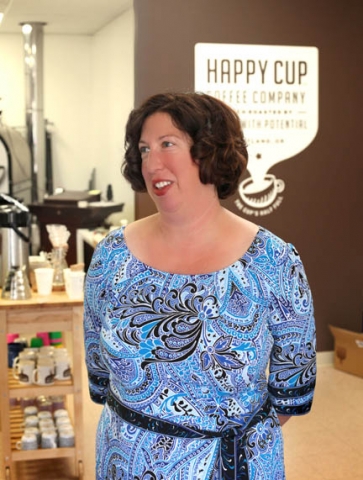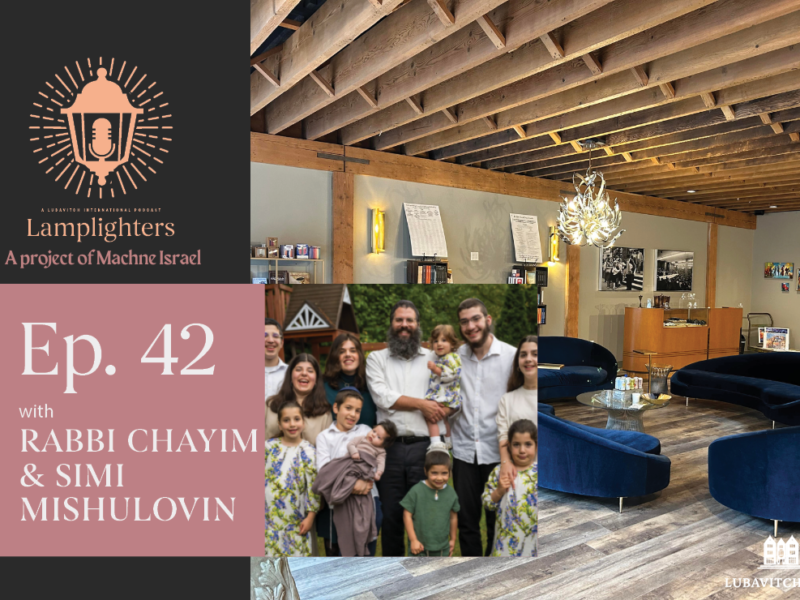
Rachel Bloom was teaching special ed but she was troubled. She’d grown attached to her high school students and wondered what was next for them. She wanted them to have happy, productive lives, but when her students with developmental disabilities turned 18 and graduated, most faced a grim shortage of vocational and recreational options.
She was worried about them. So she decided to do something about it.
Rachel’s mother was a social worker and her parents owned a counseling business. She was raised in an environment where you were expected to give back, and running a smart business to achieve that was the model she learned. She decided to create a business that would give back by addressing the challenges adults with disabilities face every day.
The result is Full Life, a company whose tagline, Champions for People with Potential, reflects her respect and optimism for a population she believes deserves a chance to thrive. Thanks to Full Life, Rachel says, “It’s a dream that comes true in a new way every day.”
Rachel started more than 10 years ago with a small grant from Clackamas County to recycle the mountains of cardboard boxes behind local malls. She went to the Oregon Office of Vocational Rehabilitation Services and told them she could employ some of their adults with disabilities, hoping, of course, that the program would be renewed and she could offer on-going employment. The program was a big success, but the malls declined to continue it. So it was back to the drawing board.
Rachel then opened her own job development business, placing people in competitive jobs. Seeing them lose their jobs over and over, however, was so discouraging that Rachel decided to take the next step: Portland Supported Employment. Rachel went from business to business, often persuading employers to create jobs if they didn’t have any open at the time. Sometimes it was just a part-time janitorial position, but that participation in the working world can make a huge difference to one of her “people with potential.”
But she wasn’t done yet.
Next came the Full Life Recreational Center in 2000. Funded by state and federal Medicaid money, the center has a diverse calendar of arts, crafts and other creative activities to promote a sense of community and help the clients gain purpose and self-esteem. Its current location on Northeast 33rd and Sandy is a large, open space with separate areas for everything from painting to guitar lessons, karaoke to TV production, and even a live webcast. Participants go on outings to bowling alleys, museums and events. They hang out at Full Life’s adjacent Happy Cup Coffee Shop.
Providing employment opportunities, however, is the elephant in the room for Rachel, always. Her goal is to create so many jobs that they have to deal with an employee shortage. Among the job development business, the recreation center and the nearby small farm, Rachel employs 75 people in various capacities.
“The farm is wonderful,” Rachel says. This year it’s particularly bountiful, with vegetables, flowers and several chickens. She hires people to plant, maintain, harvest and sell the bounty.
“It won’t make much money, with sales just through Twitter and Facebook for the most part. Actually, I just give the eggs away to my employees,” she admits. But it’s richly rewarding in the ways that count to Rachel and to her employees.
Full Life, though, still wasn’t paying for itself, and that’s why Rachel started Happy Cup Coffee Roasting in February. Portland is a coffee-loving town, Rachel reasoned. No matter that she knew nothing about roasting coffee. She does know how to work hard and hire the right people. She brought in Trevin Miller of Mr. Greenbeans “DIY coffee roasting and more” on the coffee side and mission-driven MBA Adam Bray as her operations director. They opened a storefront down the street from Full Life with just a terrific logo, a used commercial roaster and the tireless pavement pounding that had made Rachel’s job placement efforts so successful. Fortunately, Rachel knocked on the right doors.
“Most roasters start small, with a little coffee shop, sales to customers, maybe an expansion to outside and Internet sales,” Adam says. “Not us!” New Seasons and Whole Foods came on board immediately. Food Front in Hillsdale wasn’t far behind.
“They liked the flavor and they liked the message,” says Rachel.
Rachel is adding new restaurants and businesses as fast as she can. Adam keeps the wheels turning and makes sure the orders are processed. They employ as many of Rachel’s people as possible, turning what some would consider one job into two or three. A production morning may find five or six people in an organized assembly line, laughing and chatting as they glue on labels and twist-ties, weigh coffee, pour it into bags, seal the bags and stack them for delivery. Some go on sales calls.
“We found ourselves in 19 grocery stores in three months. We went from zero pounds of coffee in month one to 2,000 pounds in month three,” says Rachel. The goal is 8,000 pounds a month. In five years’ time, though, Rachel is much more ambitious.
“I want a much larger facility – two roasters working around the clock seven days a week. I want a national footprint,” she says.
“But no matter what, we don’t want to automate. We want to create jobs.”
Liz Rabiner Lippoff is a medical marketing consultant, a freelance writer and, quite definitely, a coffee lover. www.LizInk.biz.





